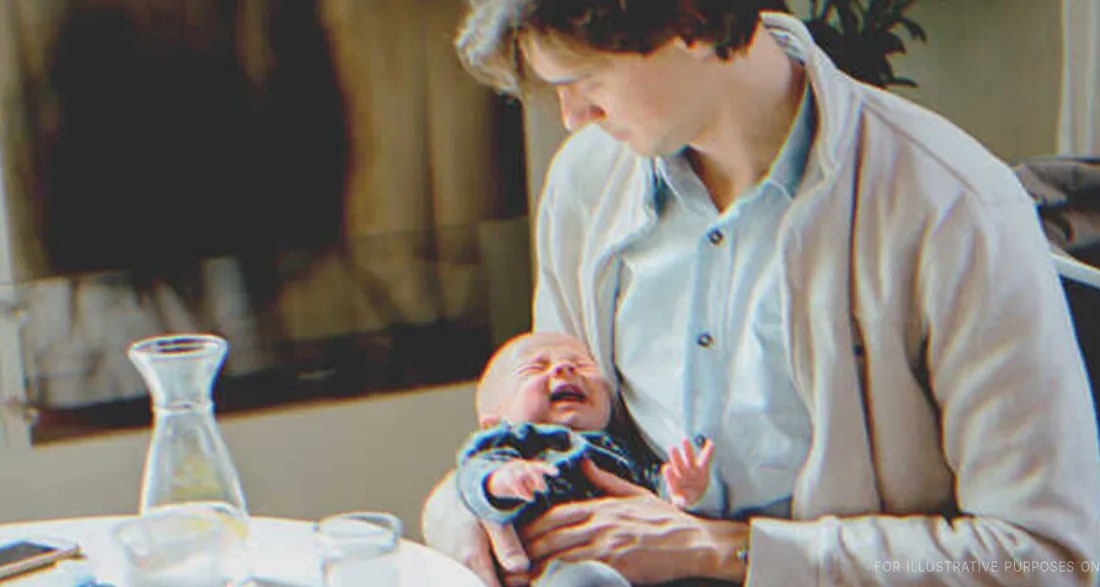It was a busy Monday evening when Libby stepped into her favorite café, sighing in relief as the warm scent of coffee wrapped around her like a comforting blanket. She had barely survived the day—a blur of never-ending meetings, impossible deadlines, and an inbox overflowing with emails. Now, she just wanted a moment of peace before heading home to her usual routine: a quick yoga session, some meditation, and, of course, more work before bed.
“One regular coffee, please,” she told the barista, tapping her nails impatiently on the counter. Moments later, she settled into a cozy corner seat overlooking New York City’s bustling streets, sipping the hot liquid as she pulled out her iPad. She glanced at her planner—another packed schedule of meetings and work. Nothing new.
Just as she was about to lose herself in the endless list of tasks, an annoying sound shattered her moment of peace—a baby’s giggle. Libby frowned and turned her head. Right next to her, a baby, no older than a year, sat in a high chair, his round face smeared with apple puree. He stared at her with big, curious eyes, as if she was the most fascinating thing he had ever seen.
Libby wrinkled her nose in disgust. “Ugh. Disgusting,” she muttered under her breath.
The man sitting across from the baby—dressed in formal wear, with an office bag beside him—was talking on his phone, completely oblivious to the mess his child was making. Libby assumed he was a single father. Why else would a man in business attire be alone in a café at this hour, feeding a baby?
Before she could look away, the baby let out a high-pitched wail. Libby groaned. Of course. Just her luck.
“What a nightmare,” she thought bitterly.
She threw an irritated glance at the father. He was still on his call, bouncing the baby absentmindedly on his knee, trying to soothe him without much success. The crying grew louder, piercing through the café’s chatter and soft jazz music.
Libby had had enough.
“Excuse me, sir!” she called out sharply. “Could you do something about your baby? He’s screaming like the world is ending!”
The man turned, his eyes apologetic. “I’m really sorry,” he said quickly before turning away and continuing his call, now gently rocking his child.
But the baby didn’t stop crying.
Libby clenched her jaw. This was unacceptable.
She waved over a waitress. “I’m a regular here,” she said in a clipped tone. “The least you could do is move them to another table. Somewhere far from me. Or better yet, ask them to leave!”
The waitress hesitated. “Ma’am, as you can see, all the tables are occupied, except for the terrace, and it might be too cold for the baby. I’ll see what I can do.”
Libby crossed her arms as the waitress approached the man’s table. She watched as he sighed, ended his call, and responded in a firm voice, “Well, if she has a problem, she should be the one to move. It’s not my fault. But I do apologize for the disturbance.”
Libby’s eyes narrowed. How dare he?
She stormed over. “Listen, I don’t care if it’s not your fault,” she snapped. “Your child is ruining my evening. If you had any decency, you’d leave.”
Just then, the baby let out a delighted squeal and, with perfect aim, flung a handful of apple puree right onto Libby’s crisp white blouse.
She gasped, horrified.
“Jason, buddy!” the man scolded his son. “That’s not okay.”
He turned to Libby, wincing. “I’m really sorry about that. Let me make it up to you—”
“This is ridiculous!” she cut him off, grabbing her bag. “Both you and your child are insufferable! I’m never coming here again.”
With that, she stormed out, leaving behind a furious waitress, an embarrassed father, and a giggling baby.
A year passed. Life had changed in ways Libby never expected.
She had fallen in love. Trevor, a charming contract employee at her company, had swept her off her feet. What started as casual flirting turned into something serious, and before she knew it, she was pregnant.
She had been overjoyed when she told her parents, expecting their support. Instead, she got rejection.
“We’d rather you stay single forever than marry that man,” her father had grumbled.
“Your father is right,” her mother had agreed coldly. “He doesn’t have our class. And the baby… well, if you choose to keep it, we’ll see how we can help you raise it. But Trevor? He’s not welcome in this family.”
Libby had been heartbroken. When she refused to break up with Trevor, her father fired them both from his company and cut her off completely.
By the time their daughter, Eve, was born, money was tight. Trevor took on two jobs, and Libby searched desperately for work. Finally, she landed an interview at an editorial company. But with no one to watch Eve, she had no choice but to bring her along.
As she entered the office, heads turned. Other applicants whispered, throwing judgmental looks her way.
“You can’t bring a baby in,” the receptionist said hesitantly.
“Please,” Libby pleaded. “She won’t be a problem.”
After a long sigh, the woman relented. “Fine. But don’t let her disturb the interview.”
Libby nodded and stepped inside the office.
The moment she saw the interviewer, her stomach dropped.
It was him.
The man from the café.
He studied her for a moment, then his brows lifted in recognition. “Ah. We’ve met before, haven’t we?”
Libby swallowed hard. “Yes… at the café. Your baby was crying.”
He chuckled. “Right. Small world. Please, have a seat.” Then, noticing Eve in her arms, he added, “You do know we don’t allow babies at work, right?”
Before Libby could explain, Eve started wailing.
Libby’s face burned with embarrassment. “Oh no. I’m so sorry. I—”
“May I?” he interrupted.
“What?”
“May I hold her? I think I can calm her down.”
Shocked, Libby hesitated, then handed Eve over. Instantly, the baby stopped crying as he gently bounced her, making silly faces.
“She likes you,” Libby said in surprise. “That’s not like her.”
“I love babies,” he admitted. “I’m Jonathan, by the way. Besides running this company, I’m a single dad. My son’s with my sister now—I don’t trust strangers with him.”
Tears pricked Libby’s eyes. “I… I can’t leave Eve alone. I need this job, but I understand if you can’t hire me.”
Jonathan smiled. “Nonsense. I’d like to interview you. Let’s not lose a good candidate.”
By the end of the interview, Libby had a job. Jonathan even allowed her to bring Eve, as long as it didn’t interfere with work.
“We’re all human at the end of the day, Ms. Walsh,” he said kindly. “I think having a little employee around will be great.”
As Libby walked out, her daughter in her arms, she realized something profound—life had come full circle. The very thing she had once despised had become her reality, and in the process, she had learned the most valuable lesson of all: empathy.














